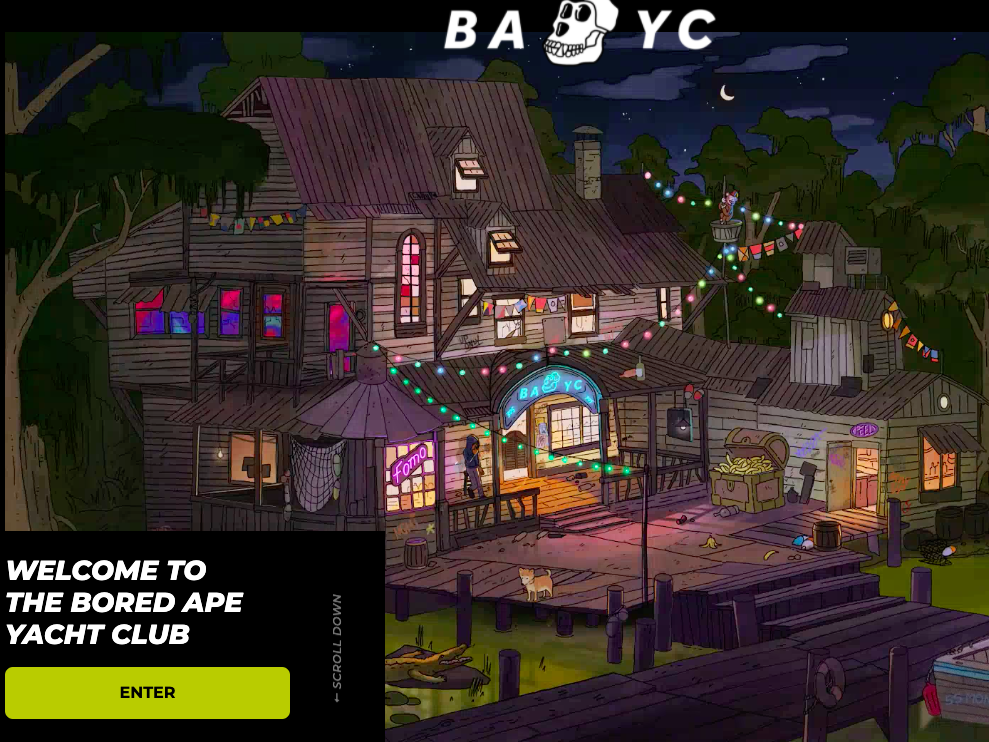What you need to know about NFTs
If NFTs were once something you could dismiss as an overly-complicated trend from the corners of the internet, times have changed.
NFT – or ‘non-fungible token’ – was recently announced as Collins Dictionary word of the year for 2021, demonstrating how mainstream they have become.
In fact, NFTs are booming, with one titled ‘Cryptopunk #9998’ selling for the equivalent of $350 million.
So what actually are they, and what makes them valuable? Are they really the future of art and finance, or just a passing fad?
![]()
What is an NFT?
An NFT is a non-fungible token. Non-fungible means that it is irreplaceable, and token just refers to it being a piece of data. They can be simple GIFs and memes or other, more diverse, digital content.
But how can an NFT be irreplaceable when the content is usually a format that is accessible online to anyone? Surely you could just take a screenshot of it?
Well, not quite. The content of the NFT (as in, what it is a picture or GIF of) can certainly be reproduced – for example, by taking screenshots. But the URL that identifies it is unique. You cannot replace the URL. When you own an NFT, that unique URL is what you’re paying for.
NFTs are run on the cryptocurrency Ethereum’s blockchain. This means that when you purchase an NFT, the proof of purchase is backed up on their blockchain. This acts as a digital record of all purchases made using that cryptocurrency.
Why are NFTs so popular?
Collectible nature
NFTs are essentially digital collectibles. The rarer they are, the more they’re worth.
The way they work isn’t too dissimilar to physical collectibles. Imagine you bought a Picasso painting. For some the value of the painting is just in its appearance, but for others the value is in its originality. The uniqueness and exclusivity of an NFT is where its value comes from. The first ever tweet, for example, was auctioned for nearly $3 million.
Community
For many collectors, being included in the culture and community surrounding a collection of NFTs is an added bonus.
One of the most popular collections of NFTs is the Bored Ape Yacht Club. The club includes lots of aspects of what makes NFTs popular: your NFT doubles up as a membership card to an exclusive online platform with a communal art board and trading space.
NFTs have also made the move into gaming. They are invaluable to the increasingly popular play-to-earn model of gaming, which allows players to trade and sell NFTs in-game to make money. The original NFT game is called CryptoKitties – in which you breed NFTs of cats with different qualities. The rarer the NFT cat, the more valuable it is.
The biggest NFT game at the moment is Axie Infinity, in which you can breed and battle creatures called Axies. Each Axie is an NFT, and again, the rarer it is the more it’s worth. You can read our guide to the Axie Infinity phenomenon here.
What are the risks?
Value fluctuation
As with any cryptocurrency-related trend, the value of an NFT can fluctuate massively. What once may have been at the height of the NFT market could drop dramatically in a short space of time if people lose interest or if Ethereum itself takes a hit.
It's worth noting that in 2022 the UK's Advertising Standards Authority undertook efforts to challenge and remove celebrity endorsements of NFTs, endorsements which they consider – thanks to the potential for values to fluctuate – to mislead consumers.
Scams
NFT scams are a regular occurrence. A recent scam was carried out by someone called ‘Evil Ape’, who created a series called ‘Evolved Apes’. Included with this was an Evolved Ape game and community similar to that of the Bored Ape Yacht Club. But ‘Evil Ape’ deleted their Twitter account and website, taking the equivalent of $2.7 million with them.
Whilst those who invested in Evolved Ape still have their NFTs, they lost out on what really constitutes the value of that NFT – namely the elite community that was supposed to come with it. Even if that doesn’t make much sense to someone unfamiliar with the concept, it may go to show how fragile value systems can be around NFTs.
Scams are also beginning to infiltrate the mainstream. Graffiti artist Banksy’s website was hacked by someone advertising an NFT of his work that sold for $366,000. While the buyer probably thought they were supporting the artist, they actually just sent this money to the hacker’s bank account.
Elite culture
The exclusive culture surrounding NFTs is a big draw for many people.
But as NFTs start to dominate more areas of life online, it’s worth thinking carefully about this culture. NFTs are a key building block of the metaverse – a concept lots of tech and gaming companies are starting to explore. Whilst we haven’t achieved an actual metaverse yet, the perceived glamour of elite NFT clubs are certainly a first step in that direction.
Copyright concerns
NFTs are a relatively new phenomenon and their legal status reflects that. In the digital world, copying an image is as easy as taking a screenshot. Taking a screenshot of an NFT doesn’t infringe copyright laws, because whoever owns the NFT technically doesn’t actually own the image – they own its unique URL.
So what actually is illegal where NFTs are concerned? Quentin Tarantino recently released a series of exclusive scenes from Pulp Fiction as NFTs, but has been sued by Miramax (the producers) who argue that NFTs are not included in Tarantino’s reserved rights.
The popularity of NFTs is often due to how they represent internet culture – some of the earliest NFTs were GIFs or memes, such as Pepe the frog. But as they enter the mainstream, there’s more of an appetite for NFTs representing popular culture, like those created by Tarantino.
Listen to Parent Zone's podcast, Tech Shock.
What next?
There’s lots still to consider with NFTs and they open up some really interesting conversations about art, value and digital culture. But despite their increasing popularity, they are still new and, with lots of scams about, it’s important to be cautious.
The idea of making money and getting involved in the NFT culture – particularly in terms of gaming – may be understandably exciting for children and young people.
Make sure to remind children that there are many risks, not just financial scams, but being in unregulated spaces with people they do not know and cannot trust.
Many of the platforms involved in NFT trading – such as Axie Infinity, and most of the exclusive NFT ‘clubs’ – are 18+. But that doesn’t mean there aren't loopholes for children to get involved.
Keeping up with all the new developments and platforms surrounding this new trend is not easy (understanding it all is hard enough!), but be confident in your parenting skills and remember that if your child is interested in them, staying involved with this interest is the best thing you can do.
Spot something that doesn't look quite right? You can email librarian@parentzone.org.uk to submit comments and feedback.
This article was last updated on 06/10/22.





 Previous Article
Previous Article 